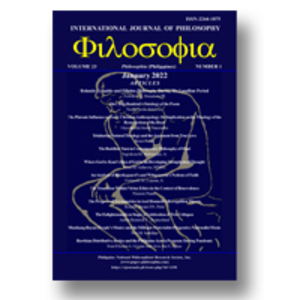Tukiran, Martinus (2024) How Management Science Obtains Empirical Truth. A Review of Karl Popper's Critical Rationalism and The Criticism of Thomas Kuhn and Imre Lakatos. Philosophia: International Journal of Philosophy, 25 (2). pp. 232-251. ISSN 2244-1875
![[img]](http://repo.driyarkara.ac.id/2006/1.hassmallThumbnailVersion/CVphilo.jpg)
|
Image
CVphilo.jpg - Cover Image Download (56kB) | Preview |
Abstract
Karl Popper emphasized that to distinguish science from pseudoscience, a theoretical system must be falsified, not verified. This paper aims to show that management science research meets the empirical truth criteria Popper identified as the demarcation of science. The findings of this study show that Karl Popper's critical rationalism has limitations when applied to the field of management research. In addition, this article highlights the importance of Thomas Kuhn and Imre Lakatos' critique of Popper's rationalist approach in contributing to the development of management science. Although Popper's critical rationalism has been widely discussed in various papers, there is a research gap in how to integrate Popper's ideas along with the critiques of Kuhn and Lakatos, in particular, into management theory. This paper seeks to address this gap. The pragmatic truth of management theories used by management practitioners must also meet the criteria of empirical truth based on Popper's concept of rationalism, which also includes the critiques of Kuhn and Lakatos. The implications of this research suggest that the Lakatos thinking model approach is the most appropriate for the current state of management science, while also noting the relevant elements of Popper and Kuhn's theories and how these elements can be used to strengthen the Lakatos model approach. Management science with the Lakatos model approach can provide a stronger framework for evaluating management practices and theories, resulting in a more effective and scientifically grounded decision-making process in the field of management.
| Item Type: | Article |
|---|---|
| Subjects: | B Philosophy. Psychology. Religion > B Philosophy (General) A General Works > B Philosophy. Psychology. Religion > B Philosophy (General) |
| Divisions: | Program Pascasarjana > Program Pascasarjana Filsafat |
| Depositing User: | ThM .- |
| Date Deposited: | 14 Dec 2024 08:56 |
| Last Modified: | 14 Dec 2024 08:56 |
| URI: | http://repo.driyarkara.ac.id/id/eprint/2006 |
Actions (login required)
 |
View Item |


